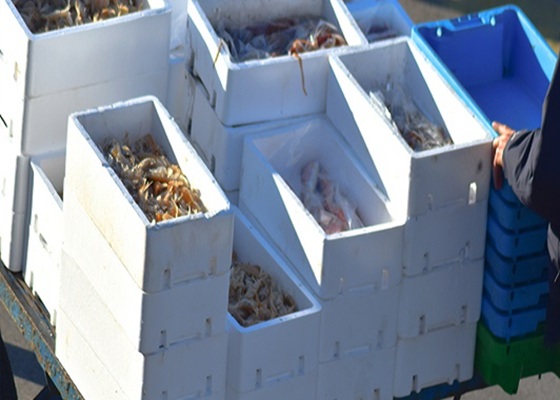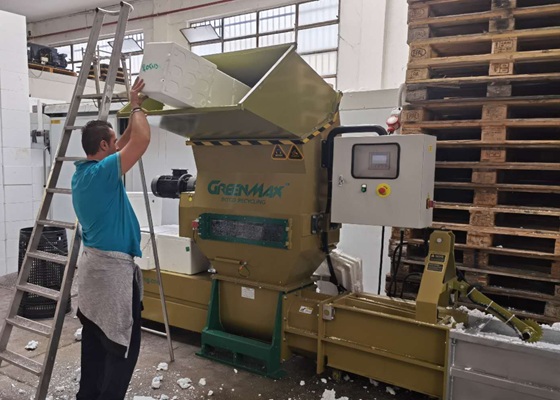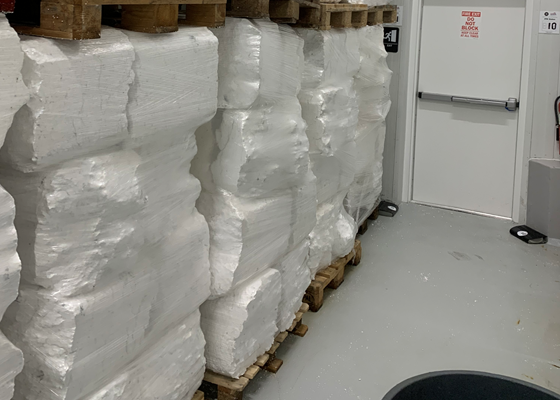GREENMAX EPS Compactor is Highly Suitable for Fish Box Recycling
Expanded polystyrene (EPS) is widely used for transporting and storing fish due to its light weight and thermal insulation properties. However, due to improper waste management and lack of foam recycling infrastructure, EPS fish boxes have become a significant source of marine pollution. Similarly, the accumulation of a large number of EPS fish boxes has also caused great trouble for fish merchants.
To address these problems, WWF launched an 18-month project in Italy to find sustainable alternatives to EPS fish boxes for small-scale fisheries. The alternative packaging solution uses FSC wooden boxes as the outer structure and the inner pallet is made of extruded polystyrene (XPS), which contains 50% recycled materials and fully complies with the circular principle.

Both XPS and EPS materials belong to polystyrene, but XPS is made by extrusion while EPS is made by molding. However, both materials are 100% recyclable. The market demand for recycled foam materials is very strong, and the foam recycling industry also has huge commercial profit potential.
Finding sustainable alternatives is a way to deal with fish boxes in an eco-friendly way, but fish merchants may face challenges such as high costs or immature technologies. Additionally, some packaging alternatives may not be able to balance cost and thermal insulation performance like EPS. Direct landfill or random disposal may not only result in high fines, but also cause serious pollution problems. In fact, EPS compactor can perfectly solve these problems while creating additional revenue for fish merchants.

EPS compactor is a device specially used for compacting foam, and it is also an essential part of foam recycling. Some fish merchants give up fish box recycling due to logistics cost issues, because EPS is large in size and light in weight, and transportation and storage costs are high.
The foam compactor compresses the foam to one-fiftieth of its original volume, reducing the logistics cost per unit volume by 50 times. The machine can also solve the problem of a large number of fish boxes piling up, by compressing them into foam blocks, maintaining 5S on site, and increasing the storage space available in the factory.
The GREENMAX EPS compactor marine series is specially developed for fish box recycling, suitable for processing EPS with high water content, with a compression density of 200-400kg/m3. Compared with the ordinary version of the foam compactor, the machine has been upgraded in material, and by using stainless steel materials, it can avoid water corrosion on the machine and make the equipment have a longer service life.

The commercial profit of foam recycling is achieved through the sales of compact foam blocks. In recent years, the market demand for this recycled material has been growing. Not only because the market tends to eco-friendly products, but also due to the encouragement and requirements of foam recycling in various countries.
Therefore, fish merchants do not have to worry too much about the subsequent sales of compact foam blocks. GREENMAX has the world's largest recycled frame production line, producing a large number of sound-absorbing wall panels, photo frames and other products every month. We have a great demand for EPS foam, and we can also provide our EPS compactor customers with sales solutions for compressed EPS blocks and make stable acquisitions.
If you are still troubled by the recycling of fish boxes, please leave your email address and GREENMAX will solve your problem with the best service.
